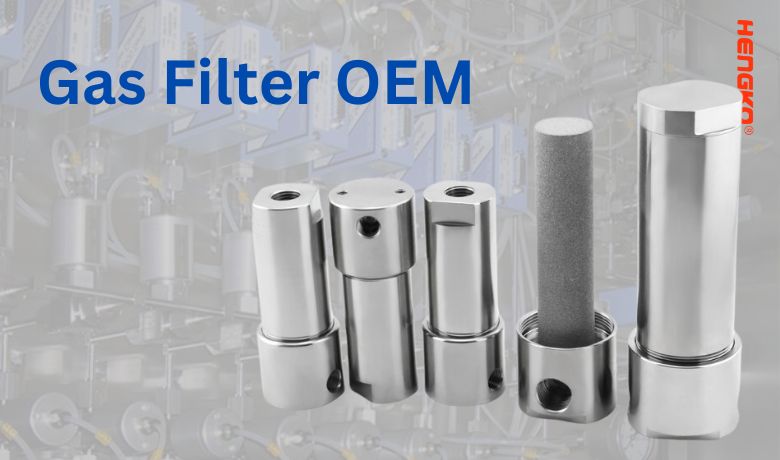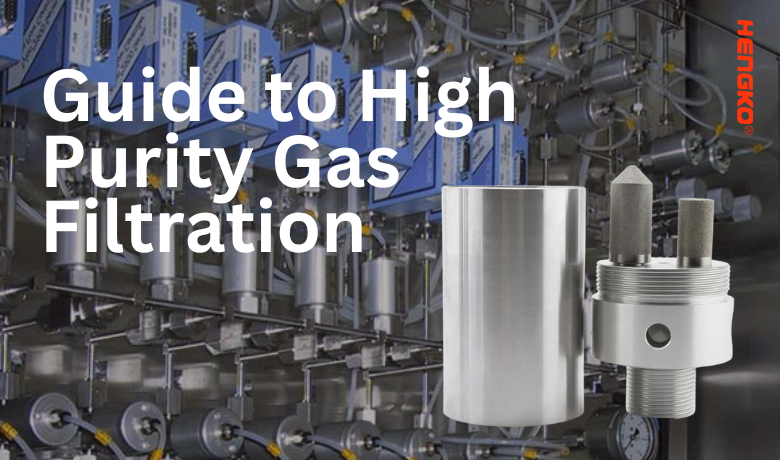-
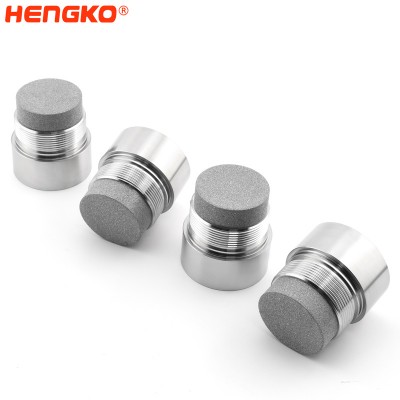
Industry gas sensor housing for flameproof fixed, gas sensor
Stainless Steel Explosion-proof filter is mainly used in aviation maintenance enterprises, used to filter gasoline, kerosene, oil, and hydraulic oil. It is a...
View Detail -
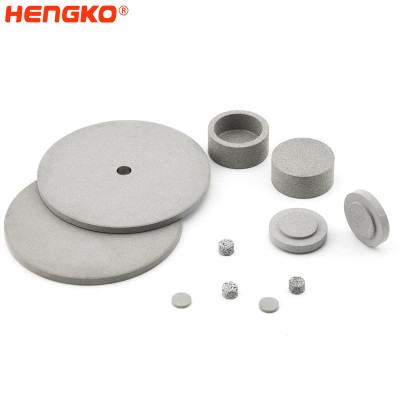
Stainless Steel Porous Metal Sheets SS316 Filter for Hydrogen Gas Diffusion
Stainless Steel Porous Metal Sheets SS316 Filter for Hydrogen Gas Diffusion Unlock the Versatility of Sintered Metal Elements with HENGKO! Our sintered meta...
View Detail -
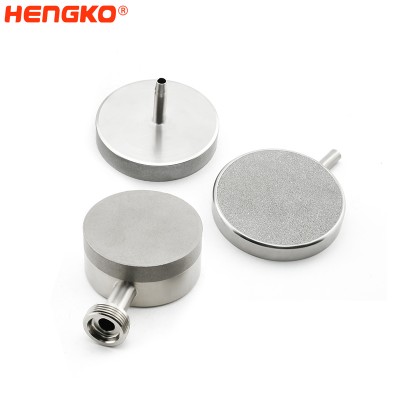
HENGKO High Purity Porous Metal Chamber Diffusers Stone for high purity gas filtration ...
HENGKO Porous Metal Diffusers quickly vent vacuum chambers to the atmosphere which decreases cycle time and increases throughput. Our stainless steel diffu...
View Detail -
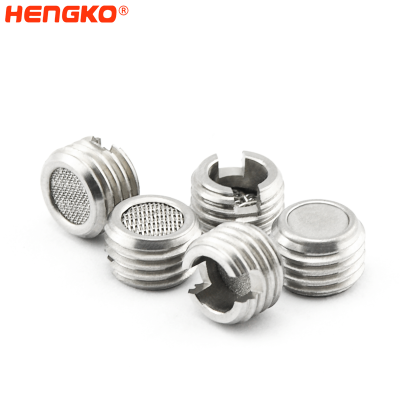
Sintered Stainless Steel Porous Metal Powder Filter Used For Gas Sensor Sampling Probe
Products Description A pneumatic component for a sampling of gas sensors, which is used to reduce pressure fluctuations The gas sampling head is a special g...
View Detail -
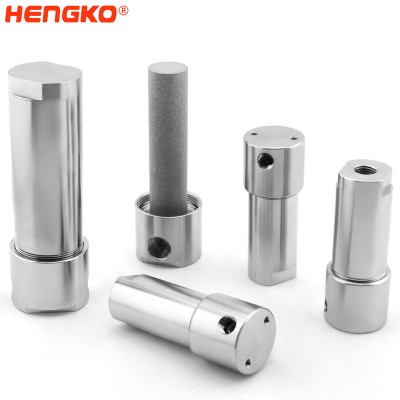
Sampling System for Gas Analyzer – High Pressure Inline Filter Ultra Pure UHP
HENGKO High-pressure gas filter for reliable protection against impurities. This market for filtration, separation and purification also complements the deve...
View Detail -
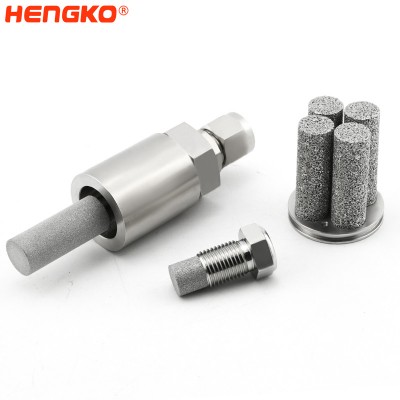
Pre-Filter for Industrial Flue Gas Sampling Probe – High Pressure Filter
Pre-filter for industrial flue gas sampling probes for sampling high dust content flue gas to avoid clogging of the gas path during sampling of sampling tube...
View Detail -
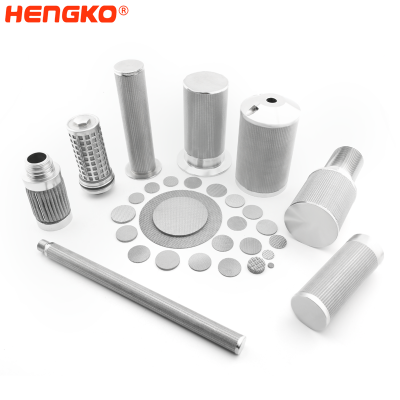
CEMS Online Smoke Analyzer Gas Sampling Probe 44.5mm*121mm a Unique Probe Design
Product Describe * Dust separation in the process * For dust concentrations above 3g/m3 * Large active surface * Long lifetime * Low differential pressur...
View Detail -
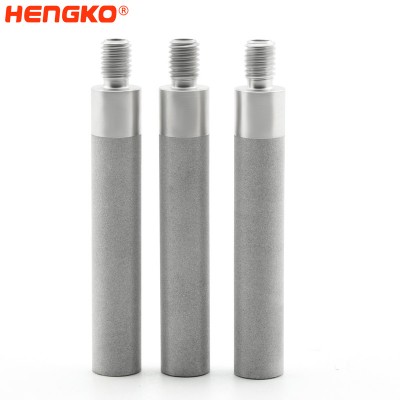
HENGKO Sintered Filter Cartridge for Process Gas and On-Line Analysis
Gas and Sample Filtration For process Gas and On-Line Analysis The filtration of gases is essential in a vast range of applications, yet only three m...
View Detail -
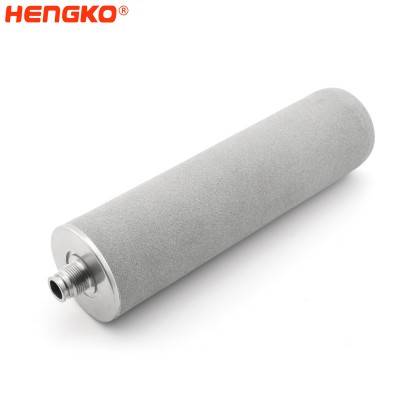
High performance porous sintered metal stainless steel isostatic filters tubes support ...
Stainless steel sintered tubes are made of stainless steel powder, processed by sintering technology. This product can purify the contaminated media and achi...
View Detail -
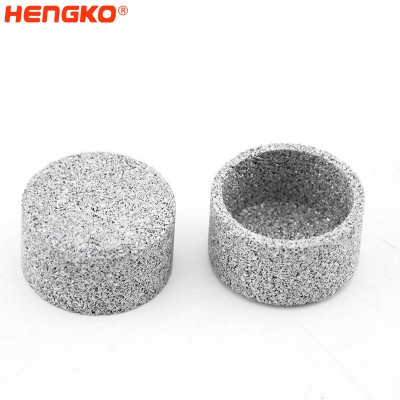
Explosion Proof Sintered Filter Gas Sensor Housing for Process and Analytical Gas Appli...
Gas sensor housing are safety devices that allow flow of combustible gases while preventing ignition. The (sintered metal filter media) gas sensor housing pr...
View Detail -
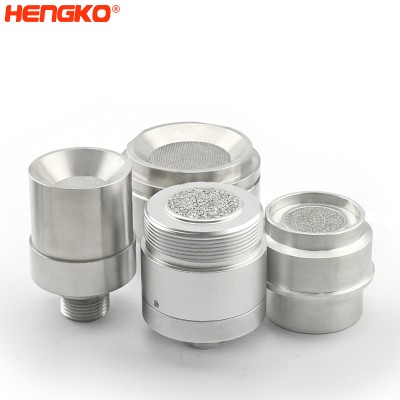
flameproof gas sensor housing, IP 65 stainless steel gas explosion proof housing to pro...
Introducing HENGKO's Cutting-Edge Stainless Steel Flameproof Enclosures for Industrial Gas Sensors! We are proud to unveil our latest range of ...
View Detail -
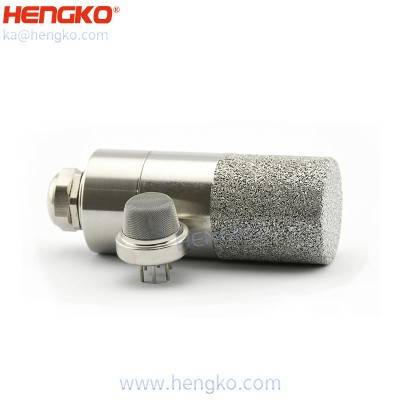
Toxic 0~100% LEL indoor gas detector sensor housing protect gas sensor module
HENGKO gas sensor module is a universal gas module designed and manufactured by combining sophisticated electrochemical detection technology with sophisticat...
View Detail -
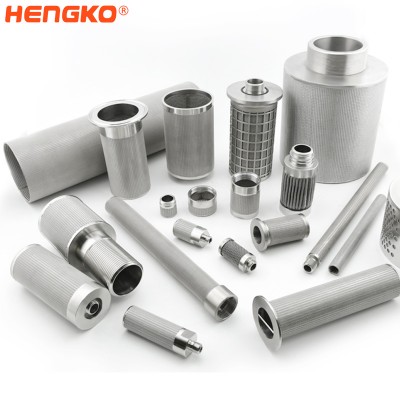
316L Stainless Steel Porous Metal Media 1/4″ and 1/2″ Face Seal Gasket Filter for Extre...
HENGKO manufactures porous metal media in a broad range of materials, sizes, and fittings so they can be easily specified with the characteristics and config...
View Detail -
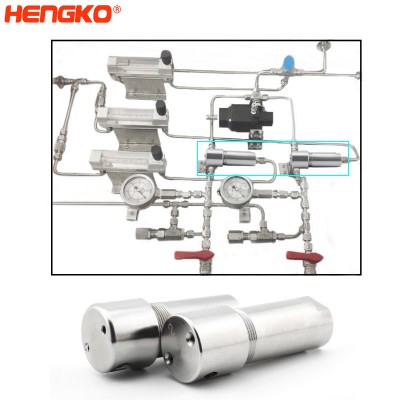
SS 316L Process Sample Gas Analyzer Filters Gas Sample Probe for Air and Gas Filtration
High-pressure housings are constructed entirely from 316L stainless steel, either with Viton or PTFE seals. Suitable for both liquids and gases, these housin...
View Detail -
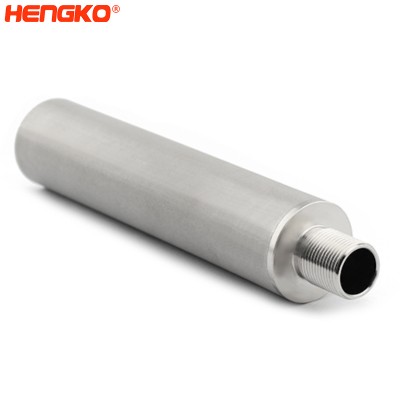
High-purity sintered porous 316L stainless steel steam filters effective retention of p...
SINTERED METAL FILTERS FOR THE REMOVAL OF PARTICLES High-purity filters and spargers are specially designed to meet strict requirements for the removal of pa...
View Detail -
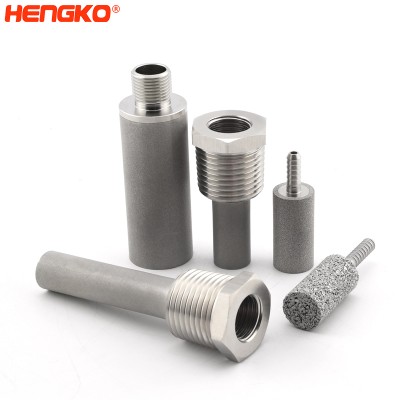
OEM high purity porous metal 316L chamber diffusers and filters
HENGKO OEM Gas Chamber Diffusers provide uniform and laminar gas flows without disturbing particles in the chamber. These diffusers also remove particles fro...
View Detail -
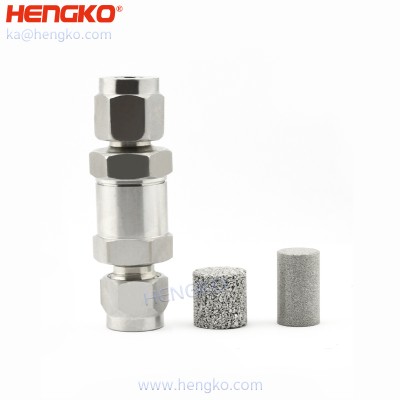
Sintered Metal Fame Arrestors Manufacturer for the Storage and Transportation of Inflam...
Flame Arrestors are safety devices that allow the flow of combustible gases while preventing ignition. The Flame Arrestorprevents the flame from transferring...
View Detail -
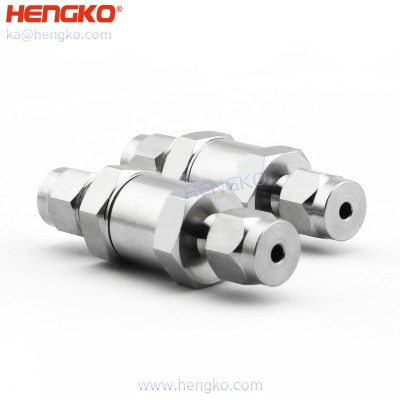
High Purity Flow Restrictors uesd in high-flow C-Seal configuration gas systems / flow ...
HENGKO delivers precision porous metal flow restrictors that provide a reliable and economical replacement for small control valves. A porous metal flow rest...
View Detail -
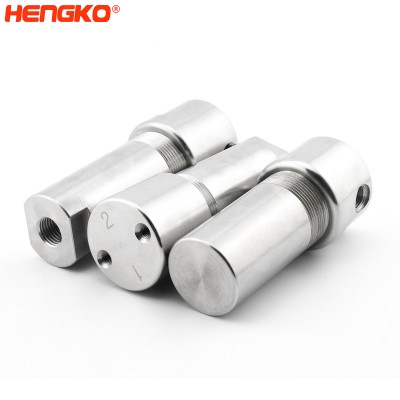
Gas Sample Probe 1/4″ stainless steel sintered metal compressed air filter assemb...
Gas and liquid sample analyzer filters protect analyzers from sample impurities by removing solids and liquids from gases with 99.99999+% efficiency at 0.1 m...
View Detail -
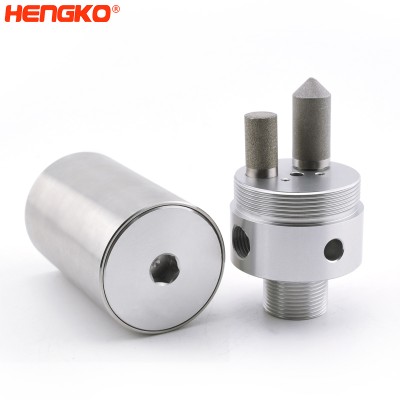
Stack Gas Sample Probe used for on-line process analyzers
Features: Remove liquids and soilds from gas samples Remove soilds and gas bubbles from liquid samples Coalesce and separate two liquid phases Filer soilds ...
View Detail
Why some gas need to filter and Purity ?
Several reasons exist for why some gases need filtration and high purity:
* Maintaining process integrity:
In applications like semiconductor manufacturing or medical procedures,
even microscopic particles or impurities can disrupt or contaminate the process,
leading to product defects or safety hazards.
* Protecting equipment:
Sensitive equipment can be damaged by even trace amounts of contaminants,
leading to costly repairs and downtime.
* Ensuring consistent results:
Precise control over gas composition is crucial for many scientific and industrial processes.
Filtration helps maintain consistent gas quality and achieve repeatable results.
* Meeting regulatory requirements:
Certain industries, like food and beverage or pharmaceuticals, have strict regulations regarding
the purity of gases used in their processes.
Here are some specific examples:
* Inert gases like nitrogen and argon used in welding or food preservation require filtration to remove
moisture and oxygen, which can compromise the weld quality or promote spoilage.
* Process gases used in semiconductor manufacturing, such as ammonia or hydrogen chloride, need
extremely high purity levels to prevent defects in the microscopic circuits being created.
* Medical gases like oxygen or nitrous oxide used in hospitals must be free of contaminants to
ensure patient safety.
While some commercially available gases may be labeled as "high purity," they might still contain trace
impurities or pick up contaminants during storage and transportation. Filtration provides an extra layer of
protection to ensure the gas meets the specific requirements of the intended application.
Main Features of Gas Filters
Filtration Performance:
* High filtration efficiency: Sintered stainless steel filters offer excellent removal of particles down to
submicron levels, depending on the filter's pore size. This ensures high gas purity and protects
sensitive equipment and processes.
* Wide range of pore sizes:
Filters can be manufactured with various pore sizes, allowing them to be customized for specific
filtration needs, from removing large dust particles to capturing microscopic contaminants.
* Depth filtration:
The porous structure of the sintered metal allows for depth filtration, where particles are trapped
throughout the filter media, not just on the surface. This extends the filter's lifespan and ensures
consistent performance.
Material Properties:
* Corrosion resistance:
Stainless steel is highly resistant to corrosion from various gasses and fluids, making it suitable
for use in harsh environments.
* High temperature resistance:
Sintered stainless steel can withstand high temperatures, allowing them to be used in applications
involving hot gases.
* Cleanability:
The filters can be easily cleaned and reused, reducing replacement costs and downtime.
* Long lifespan:
Due to their robust construction and resistance to harsh conditions, sintered stainless steel filters
offer a long service life.
Additional Features:
* High mechanical strength:
The sintered metal structure provides excellent mechanical strength, allowing the filter to withstand
high pressure differentials.
* Biocompatibility:
Certain grades of stainless steel are biocompatible, making them suitable for applications involving
medical gases or food and beverage processing.
* Versatility:
Sintered stainless steel filters can be manufactured in various shapes and sizes to fit diverse application needs.
Overall, sintered stainless steel gas filters offer a unique combination of high filtration efficiency, robust material
properties, and long lifespan, making them a popular choice for various industrial and medical applications
requiring high gas purity.
How to choose right gas filter for your gas and purity project ?
Choosing the right gas filter for your project depends on a number of critical factors. Here's a step-by-step approach:
1. Define Your Needs:
* Gas type:
Identify the specific gas you will be filtering. Different gases have different chemical properties that might require specific filter materials.
* Contaminants:
Understand the types of contaminants in your gas stream (particles, moisture, oils, etc.). This determines the filter's micron rating.
* Purity level:
How pure does the gas need to be? The required purity level influences the filter's efficiency and design.
* Flow rate:
The volume of gas passing through the filter per unit of time impacts the filter size.
* Operating conditions:
Consider factors like temperature, pressure, and chemical compatibility.
2. Filter Specifications:
* Micron rating:
This value indicates the filter's ability to remove particles of a specific size.
Choose a micron rating that aligns with your purity requirements.
* Material:
Stainless steel is the most common material for durability and corrosion resistance.
Consider specific grades for special applications or biocompatibility requirements.
* Connection type and size:
Ensure the filter fits properly within your system's piping.
* Housing:
Select a housing material and design suitable for your operating conditions (pressure, temperature).
3. Additional Considerations:
* Pressure drop:
Determine the acceptable pressure drop across the filter.
Filters with finer filtration capabilities will often have a higher pressure drop.
* Replaceability:
Will you be using replaceable filter elements or a complete filter assembly?
* Cost:
Balance initial investment with ongoing maintenance and replacement costs.
4. Consult with Experts
* Filter manufacturers:
Reputable manufacturers like HENGKO (https://www.hengko.com/high-purity-gas-filter/)
specialize in gas filtration solutions and can advise on best practices for your specific application.
* Industry resources:
Look for sector-specific guidelines or regulations surrounding gas purity and filtration.
Tips:
* Oversizing:
Slightly oversizing your filter can provide better protection against unexpected surges or contamination.
* Monitoring:
Install pressure gauges before and after the filter to monitor pressure drop and determine
when the filter needs cleaning or replacement.
* Regular maintenance:
Follow the manufacturer's recommended maintenance schedule to extend the life of your filter.
Selecting the right gas filter ensures the protection of critical equipment, compliance with regulations,
and achievement of the highest levels of purity in your project.
FAQ
1. Why are gas filters and purity systems necessary?
Gas filters and purity systems play a crucial role in various applications by removing contaminants and
ensuring the desired level of gas purity. This is crucial for several reasons:
* Maintaining process integrity:
Impurities can disrupt or contaminate sensitive processes like semiconductor manufacturing or
medical procedures, leading to product defects or safety hazards.
* Protecting equipment:
Even trace amounts of contaminants can damage sensitive equipment, causing costly repairs and downtime.
* Ensuring consistent results:
Precise control over gas composition is essential for many scientific and industrial processes.
Gas filters help maintain consistent gas quality and achieve repeatable results.
* Meeting regulatory requirements:
Certain industries, like food and beverage or pharmaceuticals, have
strict regulations regarding the purity of gases used in their processes.
2. What types of contaminants can gas filters remove?
Gas filters can remove various types of contaminants, depending on the specific filter design and application.
Here are some common examples:
* Particulates:
These include dust, rust, and other airborne particles that can clog equipment and interfere with processes.
* Moisture:
Excess moisture can affect gas reactivity and cause corrosion in equipment.
* Hydrocarbons:
These organic compounds can contaminate processes and affect product quality.
* Acidic gases:
These can corrode equipment and pose safety hazards.
3. How are gas filters rated?
Gas filters are typically rated by their micron rating.
This number indicates the smallest size of particles that
the filter can capture effectively. For example, a 1-micron filter can remove
particles as small as 1 micrometer (µm) in diameter.
4. What are the different types of gas filter materials?
The most common material for gas filters is sintered stainless steel.
This material offers a combination of high filtration efficiency, corrosion resistance,
high temperature tolerance, and cleanability.
Other materials can be used for specific applications, such as:
* Ceramic:
Suitable for high-temperature and high-purity applications.
* Polymer:
Used for filtering specific gases or when lower cost is desired.
* Fiber media:
Used for pre-filtration applications to capture larger particles.
5. How do I choose the right gas filter for my application?
Choosing the right gas filter requires considering several factors, including:
* The type of gas being filtered:
Different gases have different chemical properties and require compatible filter materials.
* The desired level of gas purity:
Determine the level of filtration needed to meet your specific application requirements.
* The flow rate of the gas:
The filter size needs to be appropriate for the volume of gas being processed.
* Operating conditions:
Factors like temperature, pressure, and chemical compatibility with the filter material are crucial.
Consulting with a reputable gas filter manufacturer is recommended to ensure you select the most
suitable filter for your specific needs.
6. How often do I need to replace my gas filter?
The lifespan of a gas filter depends on several factors, including:
* The type and amount of contaminants being removed:
Filters handling heavy contamination loads will need more frequent replacement.
* The operating conditions:
High pressures, temperatures, or chemical exposure can shorten the filter life.
* The specific filter design:
Some filters offer longer lifespans due to their design and materials.
It's crucial to monitor the pressure drop across the filter regularly.
An increased pressure drop indicates a clogged filter and the need for replacement or cleaning (if applicable).
7. Can gas filters be cleaned and reused?
Some gas filters, particularly those made of sintered metal, can be cleaned and reused.
The cleaning method depends on the specific filter design and the type of contaminants being removed.
Always follow the manufacturer's instructions for cleaning and maintenance to ensure optimal performance and lifespan.
8. What are the safety considerations when using gas filters and purity systems?
Working with compressed gases and filters requires adhering to safety protocols. This includes:
* Using personal protective equipment (PPE):
Always wear appropriate eye protection, gloves, and respirators when handling gases and filters.
* Following proper handling procedures:
Familiarize yourself with safe handling practices for compressed gases and the specific filter system you are using.
* Maintaining the system regularly:
Regularly inspect your gas filters and purity system for leaks, damage, or malfunctioning components.
9. What are the environmental considerations of using gas filters?
While gas filters are essential for ensuring gas purity, it's important to consider their environmental impact. This includes:
* Proper disposal of spent filters:
Certain filter materials may require specific disposal methods to avoid environmental contamination.
* Minimizing energy consumption:
Choosing energy-efficient filter systems and optimizing operating conditions can reduce energy consumption.
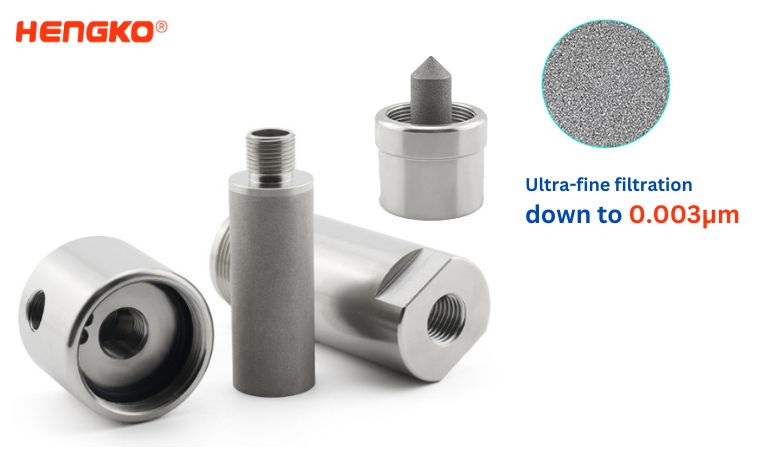
Looking for premium gas filtration and purification solutions?
Contact HENGKO today for expert OEM services tailored to your specific needs.
Whether it's high-pressure gas filtration, custom purification systems, or specialized component manufacturing,
HENGKO offers a one-stop solution. Don't hesitate, reach out to the HENGKO team now by email ka@hengko.com
